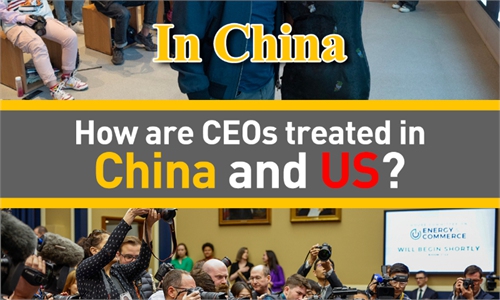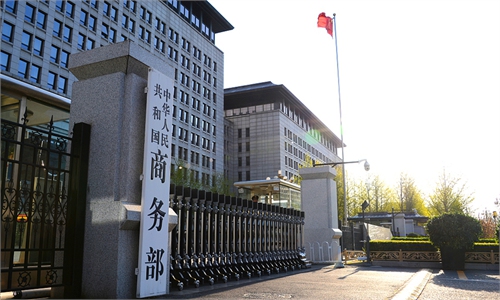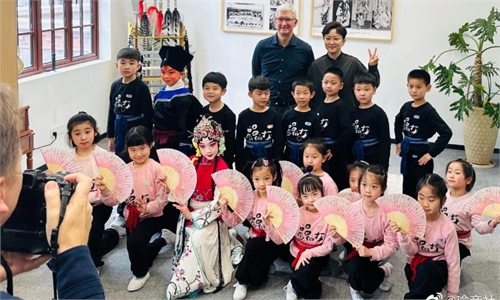Foreign CEOs' visits to China extend from March to April in signal of confidence in China’s market potential
Executives vow long-term investment, eye opportunities in economic recovery
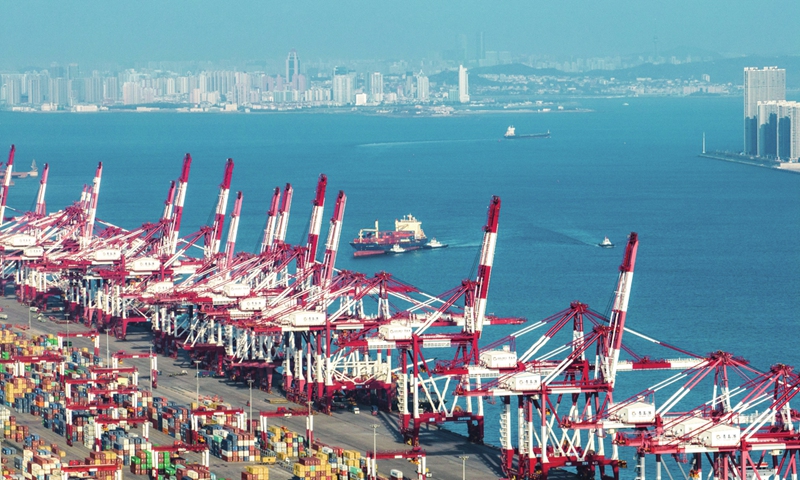
A file photo of the Qingdao area of Shandong Pilot Free Trade Zone Photo: VCG
As the weather and economic conditions both turn warmer in China, more and more multinationals' CEOs and other senior executives visited China in recent weeks, as they rushed to express optimism and support for the Chinese market as the economy emerges from the shadows of the pandemic.
On Wednesday afternoon, Scott O'Neil arrived at the construction site of the LEGOLAND Shanghai Resort. The new CEO of UK-based Merlin Entertainments appeared to be in a cheerful mood as he shook hands with construction workers and representatives from the local team.
It was the final stop on his China tour, during which he met with some Shanghai municipal officials, granted interviews and visited several Merlin attractions in Shanghai. Prior to the Shanghai visit, he stopped off at the LEGOLAND Shenzhen Resort to review the project's progress.
"The Chinese economy is alive and kicking... I'm very optimistic that the Chinese economy will continue to be a robust game changer for the global economy," he said in a group interview on Wednesday.
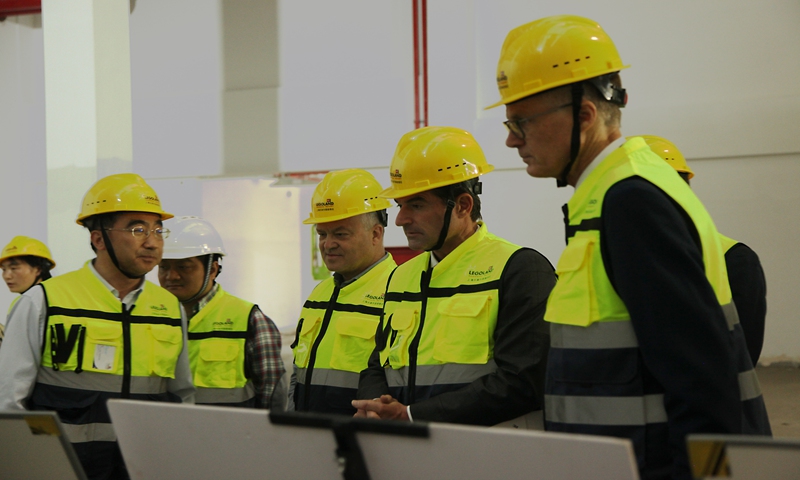
Scott O'Neil (second from right), CEO of UK-based Merlin Entertainments, visits LEGOLAND Shanghai Resort on April 19. Photo: Xie Jun/GT
Long-term commitment
According to public reports, foreign CEOs who visited China in recent weeks included Intel's Patrick Gelsinger and Apple's Tim Cook. During the visits, many of those executives expressed their companies' commitment to the Chinese market in the long run. For example, during the Shanghai auto show, Volkswagen Group announced that it will invest 10 billion euros ($10.95 billion) to set up a new company in Hefei, East China's Anhui Province to speed up research and development (R&D) and innovation on intelligent and connected electric vehicles.
"By consistently bundling development and procurement capacities as well as integrating local suppliers at an early stage, we will significantly accelerate our development pace," Ralf Brandstätter, chairman and CEO of Volkswagen Group China, told the Global Times during a group interview at the auto show.
Scott O'Neil also emphasized on Wednesday that Merlin Entertainments' investment in China will be a long-term strategy. "We don't measure our success here in a minute, a day, a week or even a year. We measure it in decades, and we plan on being here for the foreseeable future," he said. Currently, the company has 14 attractions in China and is building three LEGOLAND Resorts in the Chinese mainland. The Shanghai Resort will be the flagship LEGOLAND Resort in China.
He mentioned a number of advantages that the Chinese market offers, such as a growing middle class and robust business community. He also stressed that in the theme park industry, the market is far from being saturated in China, which gives companies a lot of opportunities.
"What we've seen in the theme park industry in China is that it's still a relatively immature market, meaning that growth is coming," he told the Global Times, adding that visitors' penetration growth rates in major Chinese cities, Shanghai and Shenzhen for example, are much lower compared with other major markets, and this "bodes very well" for the company.
Some multinationals' senior executives mentioned that they value Chinese consumers' appetite for "diversity."Jerome Cottin-Bizonne, managing director of French wine and spirits group Pernod Ricard's China group, told the Global Times during the China International Consumer Products Expo (CICPE) that Chinese consumers are still exploring more product categories, which offers opportunities for the company to bring more products to the Chinese mainland market.
Promising market
Experts said that the personal visits of overseas multinationals' executives are a signal of global companies' confidence in China's development path, particularly at a time when many favorable policies were rolled out that led multinationals to anticipate that China's economy, particularly the consumption sector, will speed up its recovery.
"Judging by the economic data in the first quarter, China's economic trends differ largely from those of many other major economies. In China, a strong recovery trend has emerged, while in the US and some European markets, risks of stagflation are still relatively high following the recent US banking crisis," Chen Jia, an independent international strategy researcher, told the Global Times.
Several multinational executives also said that they felt the trend of an economic recovery in the Chinese market. Scott O'Neil, for example, said that during his recent visit to China, he found that there are consumers "everywhere,"which bodes well for the tourism industry.
China's GDP expanded an above-expected 4.5 percent in the first quarter from a year earlier, data released by the National Bureau of Statistics showed. Retail sales in March alone increased 10.6 percent, providing a strong impetus for the country's economic recovery.
Chen also pointed out that China's advantages in its strong supply chains and a competitive labor market have passed the tests of the coronavirus and other challenges, which helps China retain its position as the world's factory despite global economic uncertainties, and it demonstrates why overseas investors continue to seek opportunities in the Chinese market.
The executives' concentrated visits to China also provide a factual refutation of some media outlets' claims that foreign businesses are leaving China for various reasons.
Hong Yong, a research fellow with the Chinese Academy of International Trade and Economic Cooperation, told the Global Times that overseas companies face problems like rising costs and intensifying competition in China nowadays, and it's normal that some companies might choose to leave, while others are entering.
"Overseas investment's entrance or withdrawal is driven by market forces in China. It represents the appeal of the Chinese market and also mirrors the changes in the global economic situation," Hong said.
